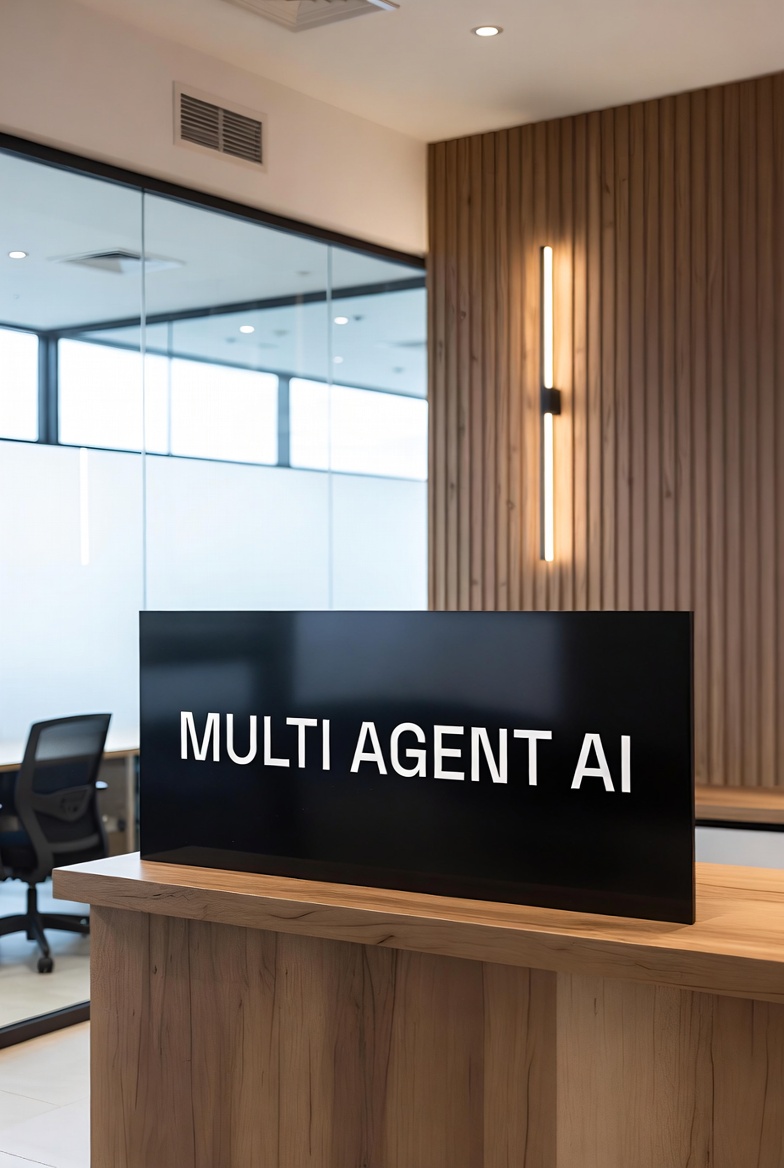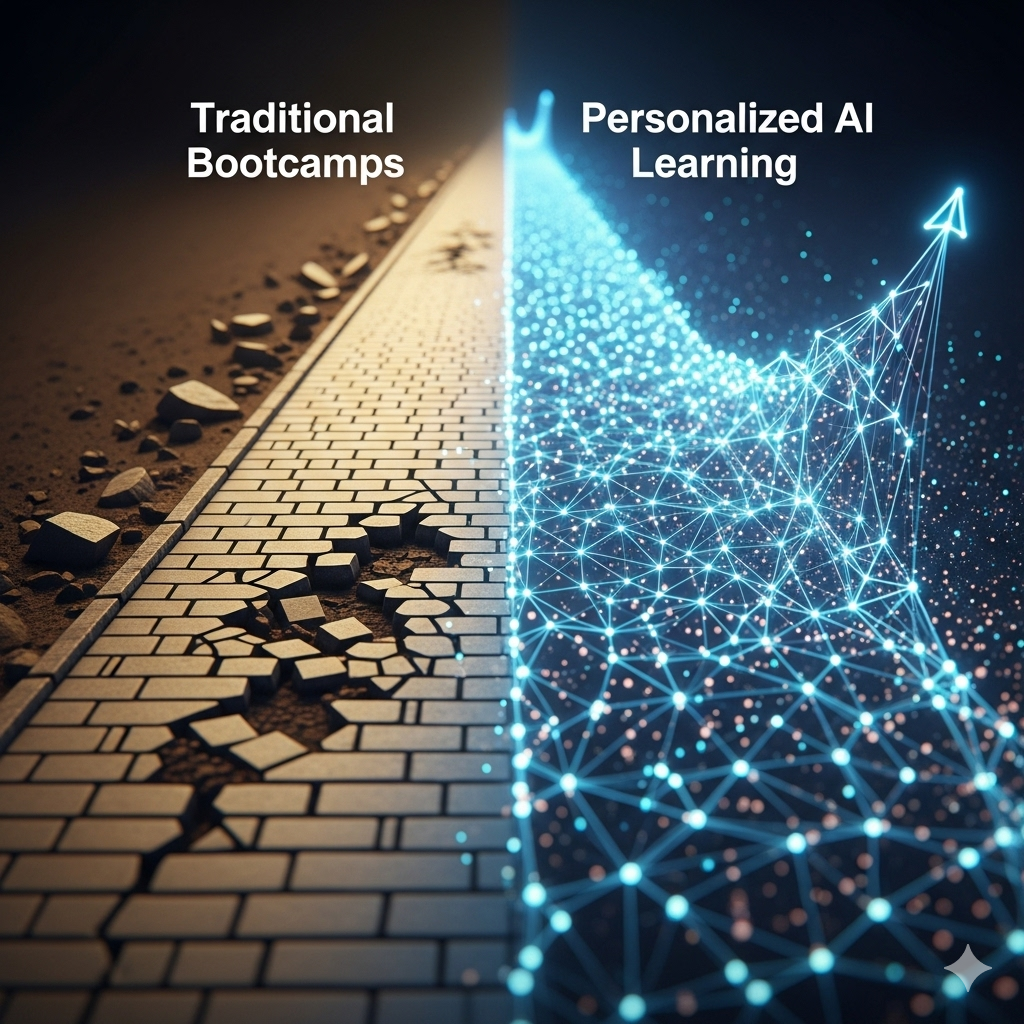AI Agents: The Future of Intelligent Learning with Didaxa
AI Agents: The Future of Intelligent Learning with Didaxa
Artificial intelligence is evolving beyond simple question-answering systems. Today's AI agents represent a new paradigm in intelligent software—systems that can reason, plan, remember, and act autonomously to achieve complex goals. At Didaxa, we're harnessing this technology to transform how students learn and master new concepts.
Understanding AI Agents
An AI agent is a software system that uses artificial intelligence to pursue goals and complete tasks on behalf of users. Unlike traditional programs that follow rigid instructions, AI agents exhibit reasoning, planning, and memory. They possess a level of autonomy that allows them to make decisions, learn from experience, and adapt to new situations.
This capability stems from the multimodal nature of modern generative AI and foundation models. AI agents can simultaneously process text, voice, video, audio, code, and other forms of information. They can converse naturally, reason through problems, learn over time, and facilitate complex workflows. Advanced agents can even collaborate with other agents to coordinate and perform sophisticated tasks that would be impossible for a single system.
What Makes an AI Agent Different
To understand AI agents, it's helpful to distinguish them from AI assistants and simple bots.
AI agents operate proactively and autonomously. They're designed to handle complex, multi-step actions, learn and adapt continuously, and make independent decisions to achieve their goals. They work toward objectives with minimal supervision. AI assistants, by contrast, are reactive. They respond to user requests and prompts, provide information, and complete simpler tasks. While they can recommend actions, the user ultimately makes the decisions. They're embedded in products to collaborate directly with users. Bots are the most basic category. They automate simple tasks or conversations by following pre-defined rules. They have limited learning capabilities and basic interaction patterns, responding primarily to triggers or commands.The key differences lie in autonomy, complexity, and learning capability. AI agents have the highest degree of autonomy and can operate independently. They're designed for complex workflows, while assistants and bots handle simpler interactions. Agents employ machine learning to continuously improve performance, whereas bots typically have little to no learning capability.
How AI Agents Work
Every AI agent is built on several foundational components:
Persona: Each agent has a well-defined role, personality, and communication style. This includes specific instructions and descriptions of available capabilities. A clear persona allows the agent to maintain consistent character and behave appropriately for its assigned role, evolving as it gains experience. Memory: Agents are equipped with multiple memory systems. Short-term memory handles immediate interactions. Long-term memory stores historical data and conversations. Episodic memory recalls past interactions. Consensus memory shares information among multiple agents. These memory systems allow agents to maintain context, learn from experiences, and improve performance by adapting to new situations. Tools: These are functions or external resources that agents utilize to interact with their environment and enhance their capabilities. Tools allow agents to perform complex tasks by accessing information, manipulating data, or controlling external systems. They can be physical, graphical, or program-based. Tool learning teaches agents how to effectively use these resources by understanding their functionalities and the context for their application. Model: Large language models (LLMs) serve as the foundation, providing the ability to understand, reason, and act. LLMs act as the "brain" of an agent, enabling them to process and generate language while other components facilitate reasoning and action.The Six Core Capabilities
Modern AI agents demonstrate six essential capabilities:
Reasoning: Using logic and available information to draw conclusions, make inferences, and solve problems. Agents with strong reasoning can analyze data, identify patterns, and make informed decisions based on evidence and context. Acting: Taking action or performing tasks based on decisions, plans, or external input. This allows agents to interact with their environment and achieve goals, whether through physical actions in embodied AI or digital actions like sending messages or triggering processes. Observing: Gathering information about the environment through perception or sensing. This involves computer vision, natural language processing, sensor data analysis, and other forms of perception that help agents understand their context. Planning: Developing strategic plans to achieve goals. Agents with planning capabilities identify necessary steps, evaluate potential actions, and choose the best course based on available information. This involves anticipating future states and considering potential obstacles. Collaborating: Working effectively with others—whether humans or other AI agents—to achieve common goals. This requires communication, coordination, and the ability to understand and respect different perspectives. Self-refining: The capacity for self-improvement and adaptation. Advanced agents learn from experience, adjust behavior based on feedback, and continuously enhance performance. This involves machine learning techniques, optimization algorithms, and other forms of self-modification.Learning AI Agents with Didaxa
At Didaxa, we've integrated AI agent technology into our learning platform to create a truly personalized educational experience. Our AI agents don't just answer questions—they understand your learning style, track your progress, remember your challenges, and adapt their teaching approach to help you master complex concepts.
When you learn with Didaxa, you're working with an agent that:
- • Reasons through your mistakes to identify underlying misconceptions
- • Plans personalized learning paths based on your goals and current knowledge
- • Observes your progress across multiple sessions to detect patterns
- • Collaborates with you to overcome obstacles and achieve mastery
- • Self-refines its approach based on what works best for you
- • Acts autonomously to provide the right guidance at the right time
Whether you're mastering calculus, preparing for AWS certification, or learning a new programming language, Didaxa's AI agents adapt to your unique needs, learning style, and pace—ensuring you don't just complete courses, but achieve true understanding and mastery.
The Didaxa Difference
Unlike traditional AI tutors that simply respond to questions, Didaxa's AI agents are proactive learning partners. They anticipate your needs, identify knowledge gaps before you realize they exist, and continuously optimize their teaching strategy to maximize your learning outcomes.
This level of sophistication is what separates AI agents from simpler AI assistants and chatbots. It's not just about answering "What is X?"—it's about understanding "How can I help this student master X in a way that builds lasting understanding?"
Ready to experience the future of learning? Start your journey with Didaxa today and discover how AI agents can transform your educational experience.
Written by
Didaxa Team
The Didaxa Team is dedicated to transforming education through AI-powered personalized learning experiences.
Related Articles
Continue your learning journey

Why Advanced Topics Demand Advanced AI: The Ensemble Architecture Revolution
Simple chatbots fail at advanced mathematics and complex subjects. Discover why ensemble AI architecture—multiple specialized agents working together—is the only way to master calculus, physics, and advanced topics.

Behind the Curtain: How Multi-Agent AI Delivers Superior Learning Experiences
Discover how multiple AI agents work together behind the scenes, consulting databases and web sources to power truly adaptive, high-quality education.

The Great Skill Reset: Why AI-Powered Upskilling is Making Bootcamps Obsolete
A deep dive into why traditional bootcamps are failing the modern workforce. Discover how AI-powered learning platforms offer a superior, personalized, and cost-effective path to upskilling and career growth in 2025 and beyond.
Experience the Future of Learning
Join thousands of students already learning smarter with Didaxa's AI-powered platform.